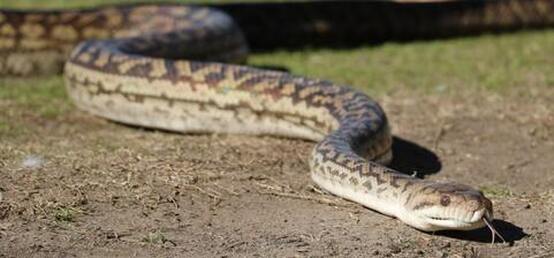On a recent trip to balmy Townsville, North Queensland our Saturday night movie screening on a friends verandah was interrupted when another guest saw a three metre python moving on the roof next door. Said serpent was moving towards the open windows of the neighbours first floor bedroom! Our hostess declared intermission, paused the movie and contacted the neighbours to close their bedroom windows.

The other movie-goers, Queenslanders, shrugged, took a sip of their XXXX and declared “Thats Townsville!”
This cowboy immediately found it difficult to focus on the french sub-titles and only think about how I could prevent pythons from getting in my North Queensland friends storm water pipes.
By the time the movie had ended I came up with a few simple ways to prevent pythons from entering your North Queensland storm water pipes:
- Install wire mesh or grates: Fit wire mesh or grates over the openings of your storm water pipes. Use a mesh with small openings to prevent snakes from slithering through. Make sure the mesh or grates are securely fastened to prevent any gaps.
- Seal pipe joints and cracks: Inspect your storm water pipes for any gaps, cracks, or loose joints. Snakes can squeeze through surprisingly small openings, so seal these gaps using appropriate materials like silicone sealant or concrete patching compound.
- Regularly maintain and clear vegetation: Remove any overgrown vegetation or debris around your property, particularly near the storm water pipes. Pythons are attracted to areas with ample hiding spots, so keeping the area clear reduces their habitat and discourages them from approaching.
- Consider snake repellents: Some commercially available snake repellents emit odors that snakes find unpleasant. Consult with a local expert or snake control professional to determine if such repellents are effective and suitable for your situation.
- Monitor and remove potential snake magnets: Snakes are often attracted to food sources, like small animals or rats and mice. Take steps to control rodent populations around your property, such as securing garbage bins and removing potential food sources.
- Educate yourself and your neighbours: Learn about the types of snakes in your area, their habits, and their preferred habitats. Share this knowledge with others in your community to raise awareness and promote snake-safe practices.
- Consult a local snake expert: Reach out to local wildlife or snake experts who have experience dealing with snakes in your specific region. They can provide valuable advice and guidance tailored to your location.
Remember, it’s important to handle snakes with caution and avoid direct confrontation. If you encounter a snake or suspect an infestation, contact the local wildlife authorities or snake control professionals for assistance and advice.

Leave a Reply